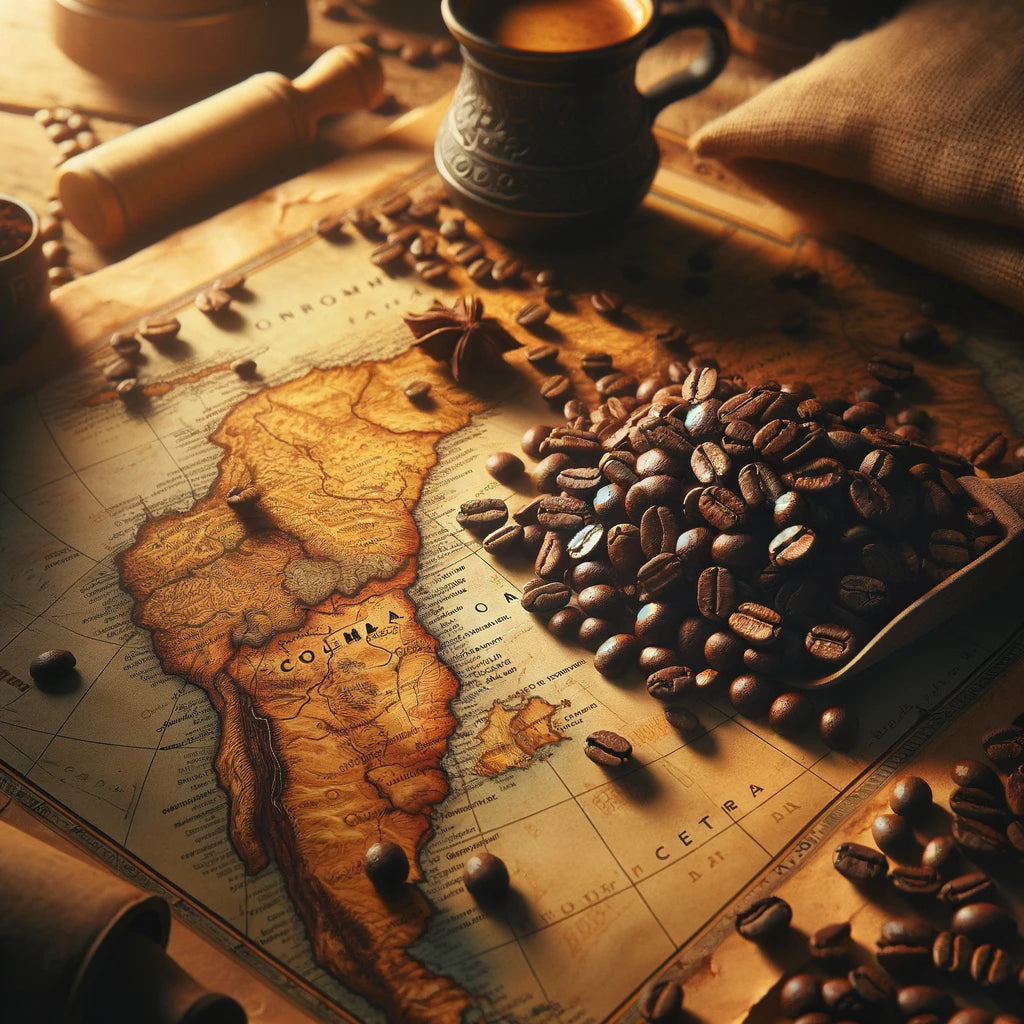
The History of Coffee
From Ancient Rituals to Modern Day Brews, Coffee is a beverage that has become an integral part of daily routines worldwide, and has a rich and complex history that spans continents and cultures. Here we delve into the origins of coffee, its journey across the world, and its cultural, economic, and social impacts over the centuries.
From ancient Ethiopian legends to the bustling coffeehouses of 17th-century Europe, and from the coffee plantations of the Americas to the modern-day specialty coffee movement, this exploration provides a comprehensive overview of coffee's evolution and its enduring significance.
Coffee, derived from the beans of the Coffee plant, is more than just a drink; it's a cultural phenomenon. Its history is a tapestry of stories, innovations, and revolutions. We will trace the journey of coffee from its earliest known origins to its present-day global prominence.
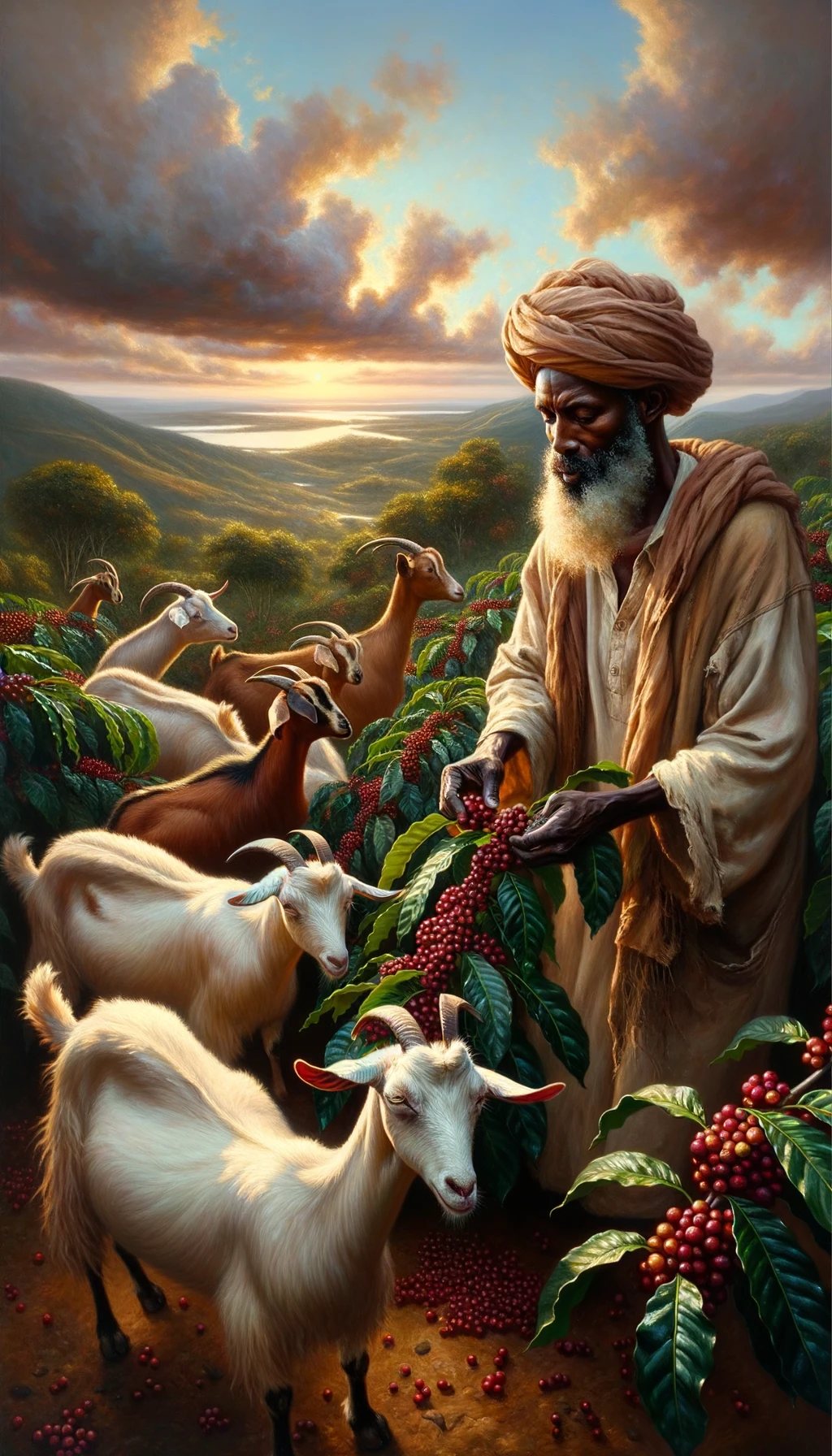
The Origins: Ethiopian Legends and Arabian Beginnings
According to popular legend, coffee was discovered by an
Ethiopian goat herder named Kaldi in the 9th century. Noticing the energizing effects of the berries on his goats, Kaldi tried them himself, leading to the birth of coffee consumption. The beans made their way to the Arabian Peninsula, where they were first roasted and brewed, similar to how we prepare coffee today. Beyond the legend of Kaldi, Ethiopia's rich coffee culture is evident in its traditional coffee ceremony, a joyous process of roasting, grinding, and brewing coffee in the presence of family and friends. This ceremony, still practiced today, emphasizes the communal and social aspects of coffee consumption.

Coffee Spreads to the Middle East and North Africa
As coffee moved from the Arabian Peninsula, it found a home in the Ottoman Empire. The empire's vast reach facilitated the spread of coffee to North Africa, the Balkans, and Eastern Europe. By the 15th century, coffee was being cultivated in Yemen, and from there, it spread to Persia, Egypt, Syria, and Turkey. Coffeehouses, known as "qahveh khaneh," became popular social hubs where people gathered for conversation, music, and intellectual exchange.
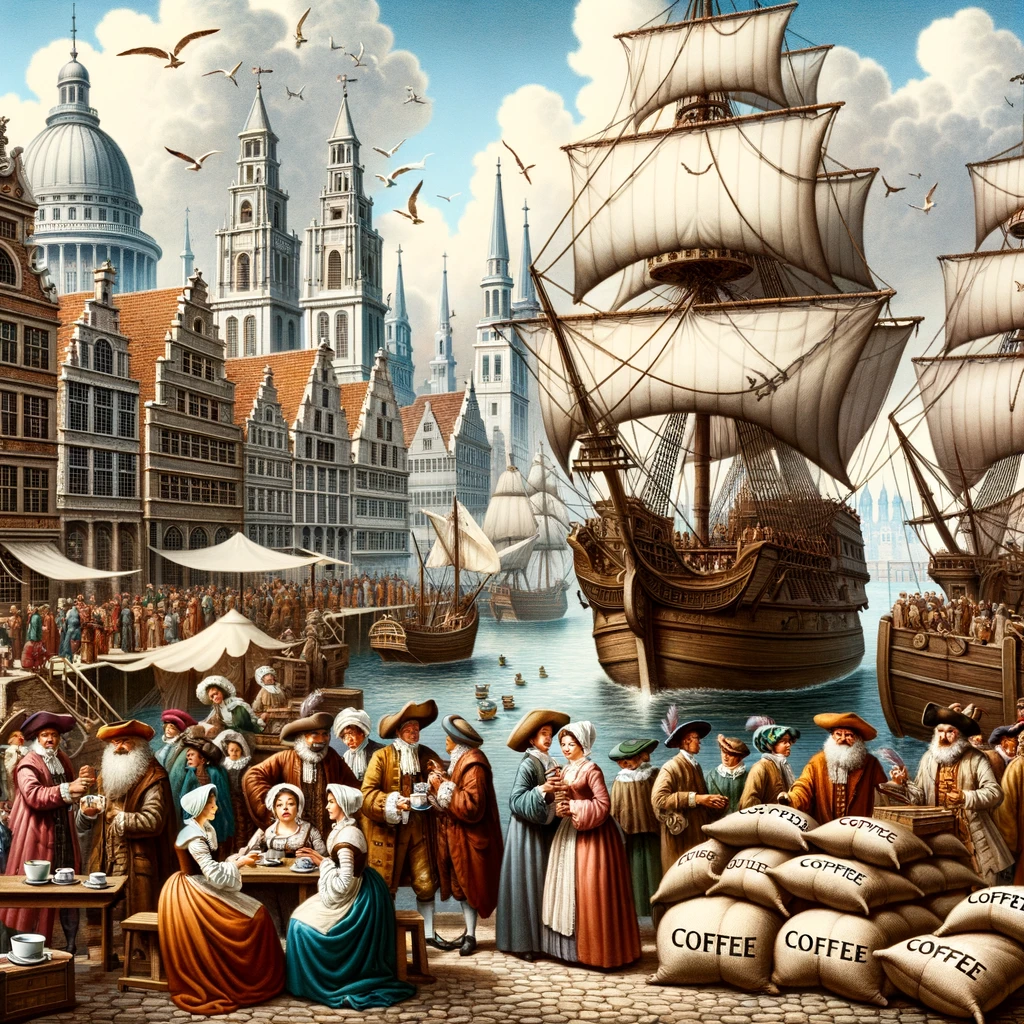
Europe Embraces Coffee
European travelers to the Middle East brought back tales of this intriguing beverage. By the 17th century, coffee had reached Europe, leading to the establishment of coffeehouses in major cities. These establishments played a crucial role in the Age of Enlightenment, serving as centers for discussion and debate.
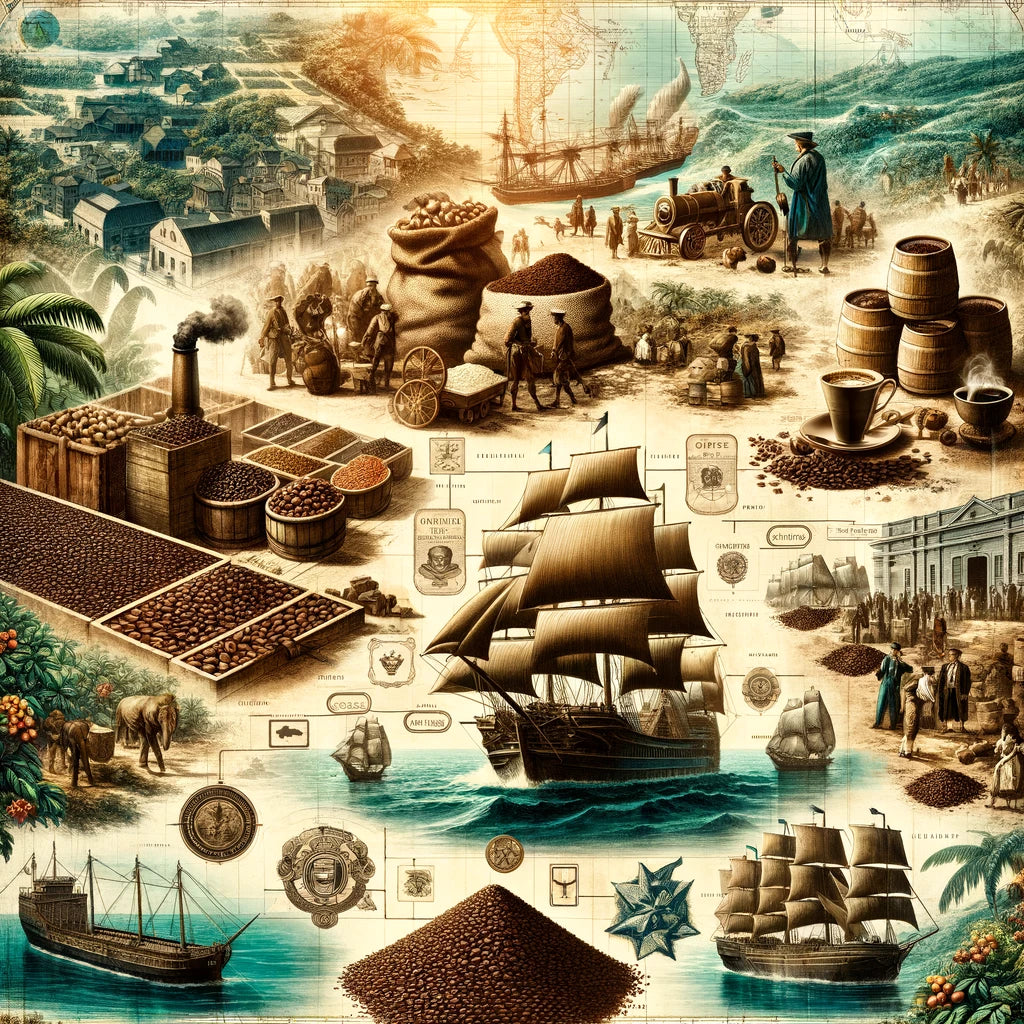
The Global Coffee Economy
The global demand for coffee in the 18th and 19th centuries had profound economic implications. The lucrative potential of coffee cultivation led European colonizers to establish plantations in their overseas
territories, particularly in the Caribbean and South America, transforming global trade routes and economies. The coffee trade also played a role in the early banking and insurance sectors.
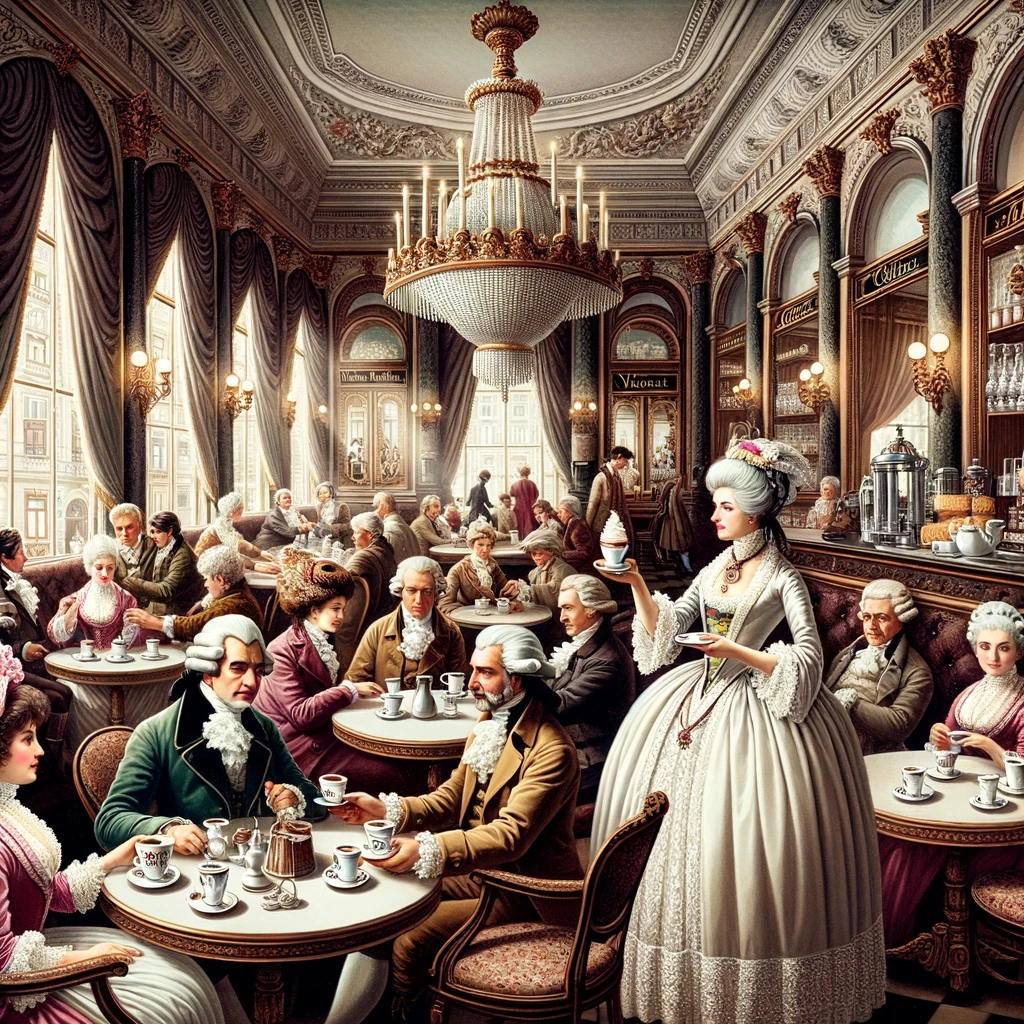
The Cultural Fabric of Coffee
Each region adapted coffee to its tastes and traditions. For instance, the Viennese added whipped cream and spices, leading to the famous "Wiener Melange." In North America, the Boston Tea Party of 1773 shifted the popular beverage preference from tea to coffee.
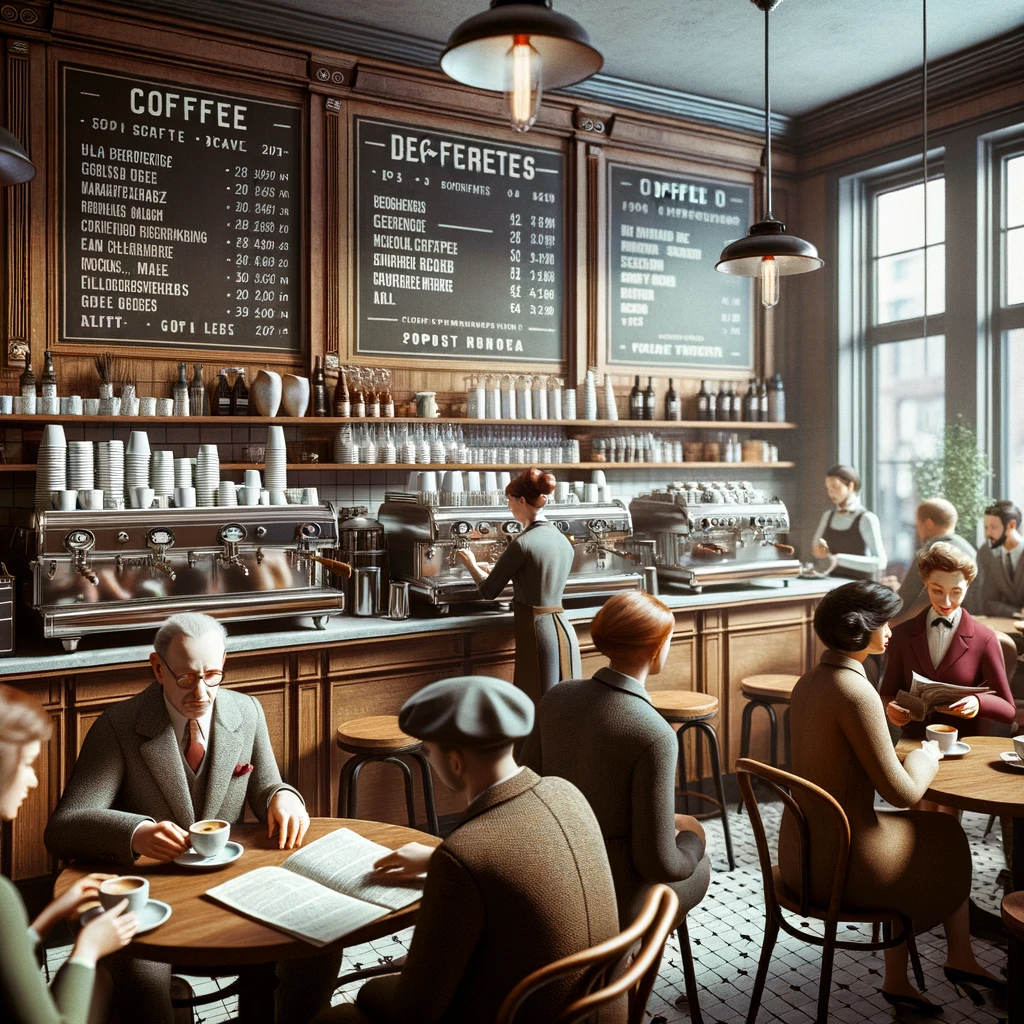
The Rise of Specialty Coffee Shops
The 19th and 20th centuries witnessed innovations like decaffeinated coffee and the growth of specialty coffee shops. These developments made coffee more accessible to the masses and transformed its consumption patterns.
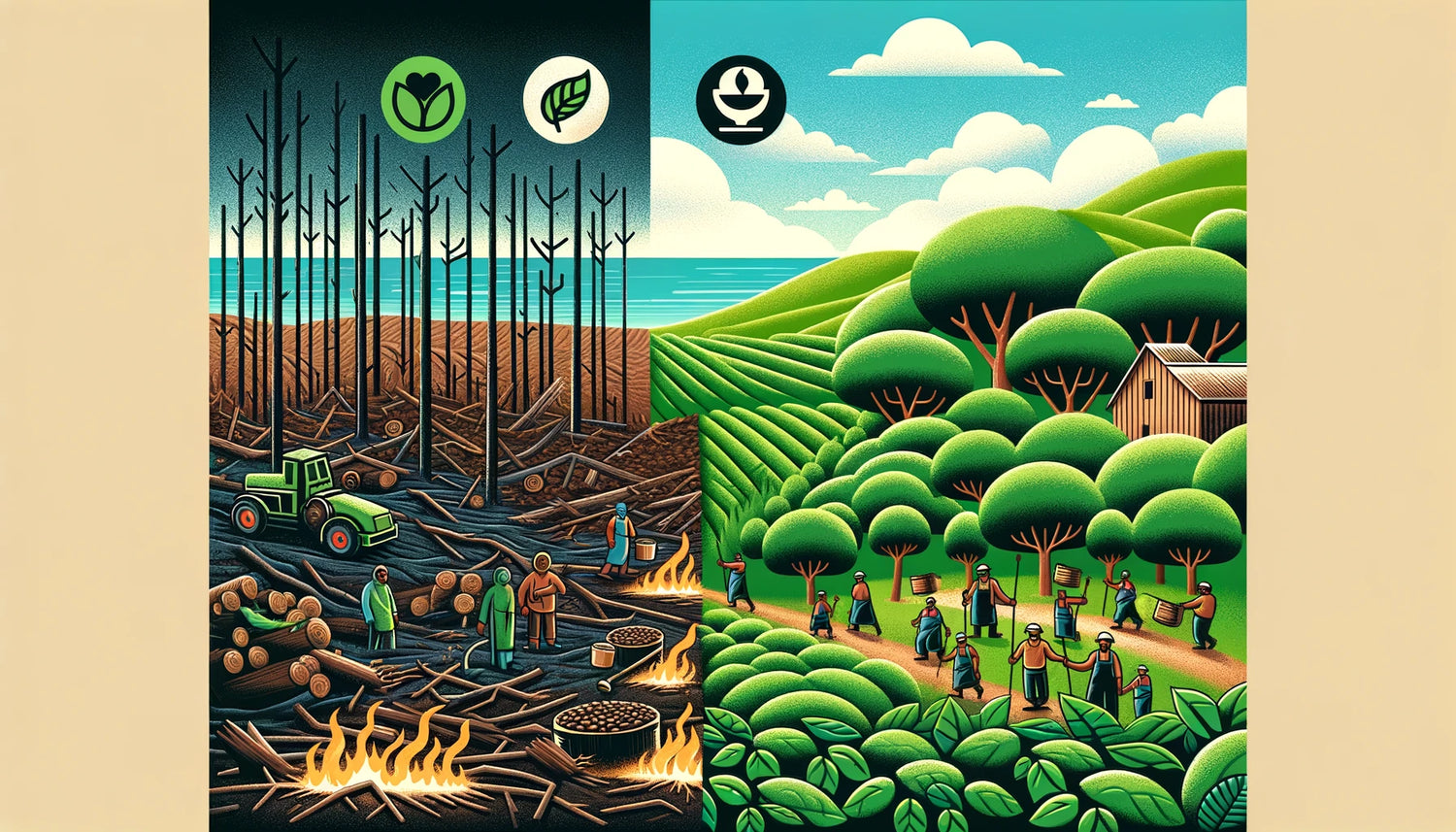
Coffee and Sustainability
The modern coffee industry faces challenges related to sustainability and ethics. Issues like deforestation, pesticide use, and fair wages for farmers have led to movements advocating for organic, shade-grown, and fair-trade coffee.
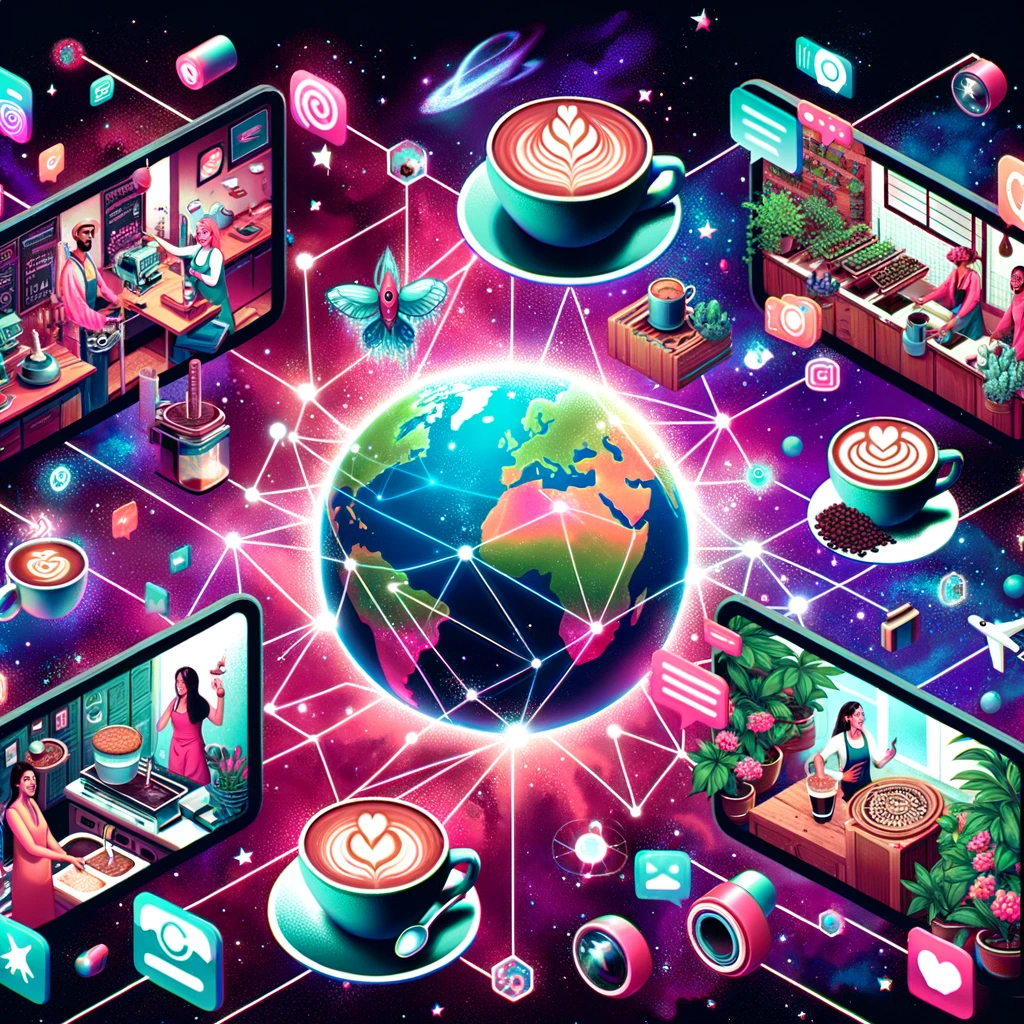
Coffee in the Digital Age
The 21st century has seen the rise of coffee culture in digital spaces. Social media platforms are filled with coffee-related content, from latte art tutorials to coffee farm vlogs. Additionally, apps and online platforms connect consumers directly to coffee growers, fostering a deeper understanding and appreciation of the coffee journey from bean to cup.
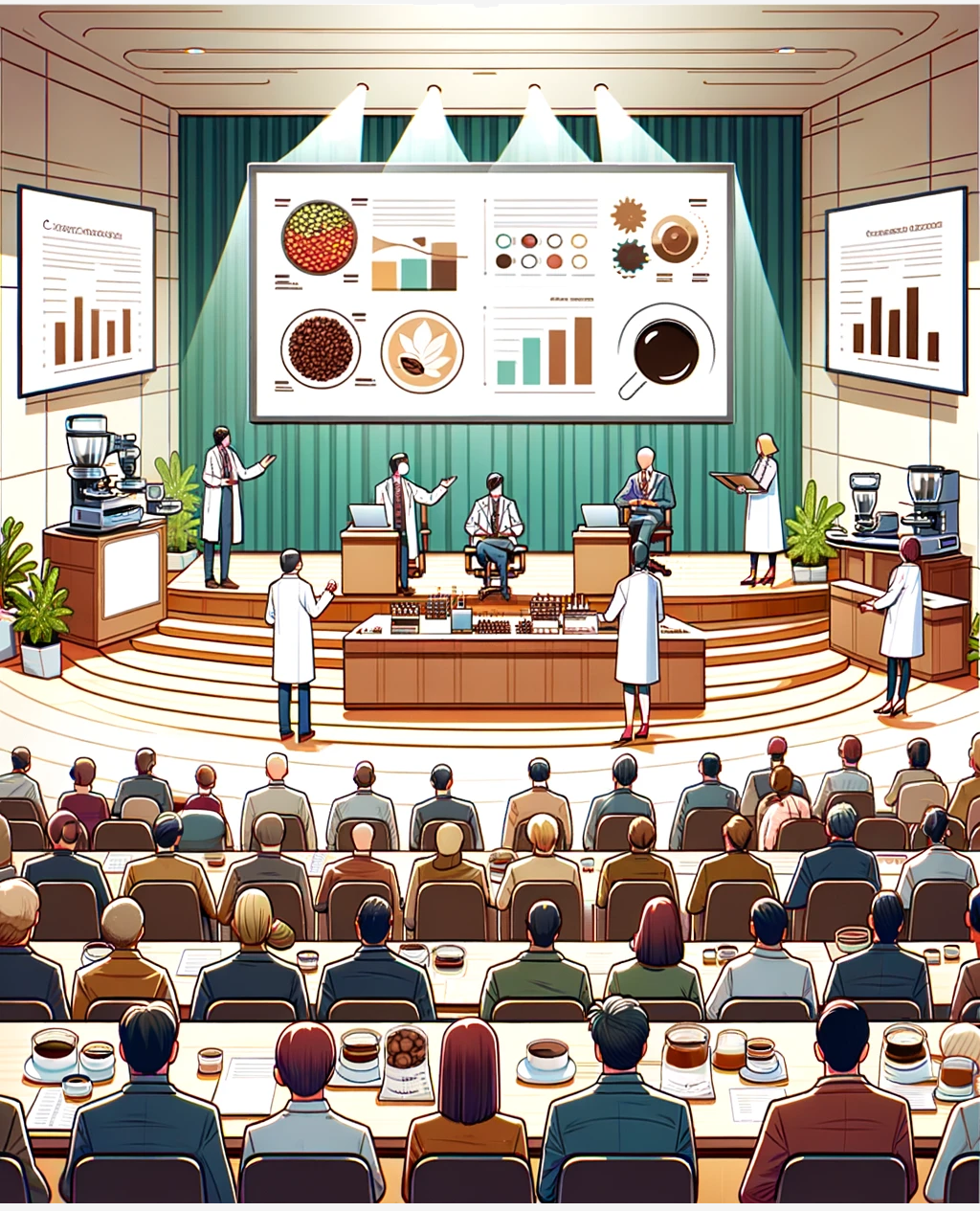
The Science of Coffee
Recent years have seen increased research into coffee's health effects, its genetic diversity, and brewing techniques. Innovations in biotechnology aim to create coffee beans that are more disease-resistant and adaptable to changing climate conditions.
Organic farming and natural chemical free methods to decaffeinate coffee such as the Swiss Water Process is becoming a standard for those wanting the healthiest, best tasting coffee. The health benefits of coffee have been well researched and new information on coffee's ability to help many aspects of our health including living longer, heart health, Alzheimer's disease, stroke prevention, liver and kidney wellness.
New research is revealing the ability of coffees rich polyphenol and other nutritional compounds to activate an adaptive cellular response characterized by the upregulation of proteins involved in cell protection, notably antioxidant, detoxifying and repair enzymes.
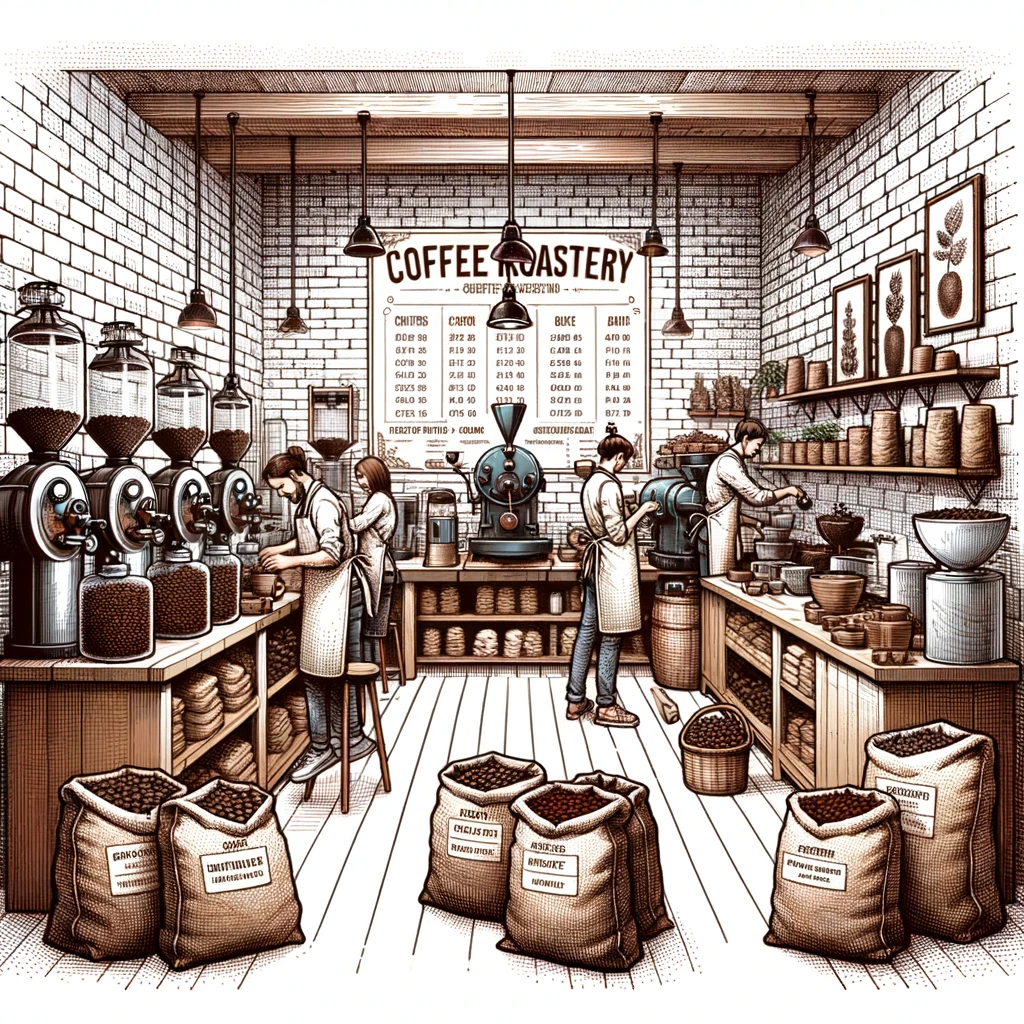
The Specialty Coffee Movement
In recent decades, there has been a shift towards specialty and artisanal coffee. This movement emphasizes bean origin, sustainable farming practices, top grade flavor and aroma along with unique brewing methods, reflecting a renewed appreciation for the science, art and craft of coffee-making.

The Journey Continues
From its mythical origins in Ethiopia to its status as a global commodity and cultural icon, coffee's journey is a testament to its enduring appeal and significance. As we sip our morning brew, we are not just consuming a beverage but participating in a ritual that has been shaped by centuries of history.
